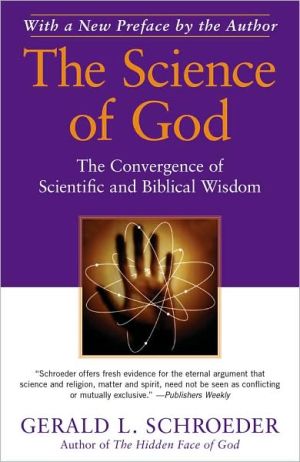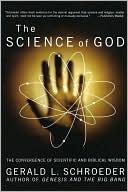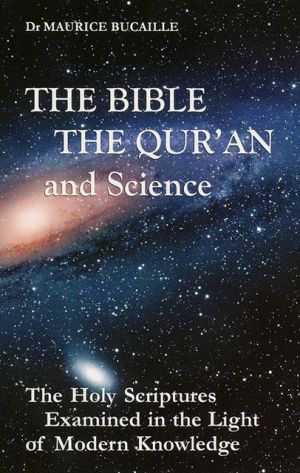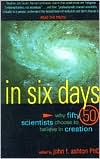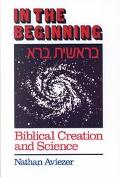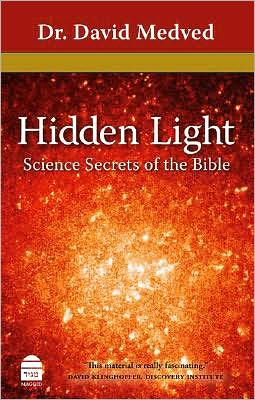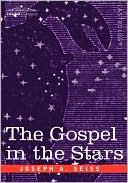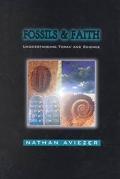The Science of God: The Convergence of Scientific and Biblical Wisdom
For the readers of The Language of God, another instant classic from "a sophisticated and original scholar" (Kirkus Reviews) that disputes the idea that science is contrary to religion.\ In The Science of God, distinguished physicist and Biblical scholar Gerald L. Schroeder demonstrates the surprising parallels between a variety of Biblical teachings and the findings of biochemists, paleontologists, astrophysicists, and quantum physicists. In a brilliant and wide-ranging discussion of key...
Search in google:
In The Science of God, distinguished physicist and biblical scholar Gerald Schroeder compares key events from the Old Testament with the most current findings of biochemists, paleontologists, and physicists, arguing that the latest science and a close reading of the Bible are not just compatible but interdependent. In the vein of Francis Collins's The Language of God, The Science of God explores how religious belief is enhanced by an open-eyed investigation of the world and how honest science must be humble in the face of life's extraordinary richness. Schroeder's is an important voice in the raging debate between science and religion, and his insights into miracles, the origins of the universe, the origins of life on Earth, and the meaning of free will make The Science of God more relevant than ever. Library Journal Schroeder (Genesis and the Big Bang, LJ 9/15/90) is an Israeli physicist and scholar of Genesis who maintains that a properly understood Bible and a properly understood science provide consistent sets of data. In recent decades, scientific discoveries in cosmology, paleontology, and quantum physics do not demonstrate or prove the activity of God, but they do remove conflict with that activity. Rapprochement occurs when believers read the Bible on the Bible's terms, avoiding literalism, and when scientists realize that science is powerless to pronounce on a purpose for life. Schroeder is very lucid in explaining difficult scientific concepts, such as the passage of time according to the theory of relativity, and religious data, such as the original Hebrew words. Schroeder's careful and responsible handling of the data on origins from science and Genesis 1, combined with a fresh, judicious correlation between the two, is compelling. Highly recommended.Eugene O. Bowser, Univ. of Northern Colorado, Greeley
List of IllustrationsPrologue: A Colleague Turns Sixty1Has Science Replaced the Bible? The Great Debate12The New Convergence: Science, Scientists, and the Bible203The Age of Our Universe: Six Days and Fifteen Billion Years414The Six Days of Genesis605The Nature of God: Biblical Expectations for an Infinite yet Immanent Creator726Life: Its Origins and Its Evolution837Evolution: Statistics Versus Random Mutations1018The Watchmaker and the Watch1159The Origin of Humankind12510The Science of Free Will14611Why Bad (and Good) Things Happen16612Bread from Earth: A Universe Tuned for Life176Epilogue: Well, What About Dinosaurs?191App. aCosmic Background Radiation (CBR) as a Universal ClockApp. bProblems in Estimating the Age of the UniverseApp. cThe Logic of Having a Biblical CalendarApp. dThe Long Life Spans at the Time of Adam and EveApp. eGenesis Day ThreeApp. fThe Flood at the Time of NoahNotes207Acknowledgments217Index of Biblical References219General Index221
\ Library JournalSchroeder (Genesis and the Big Bang, LJ 9/15/90) is an Israeli physicist and scholar of Genesis who maintains that a properly understood Bible and a properly understood science provide consistent sets of data. In recent decades, scientific discoveries in cosmology, paleontology, and quantum physics do not demonstrate or prove the activity of God, but they do remove conflict with that activity. Rapprochement occurs when believers read the Bible on the Bible's terms, avoiding literalism, and when scientists realize that science is powerless to pronounce on a purpose for life. Schroeder is very lucid in explaining difficult scientific concepts, such as the passage of time according to the theory of relativity, and religious data, such as the original Hebrew words. Schroeder's careful and responsible handling of the data on origins from science and Genesis 1, combined with a fresh, judicious correlation between the two, is compelling. Highly recommended.Eugene O. Bowser, Univ. of Northern Colorado, Greeley\ \
